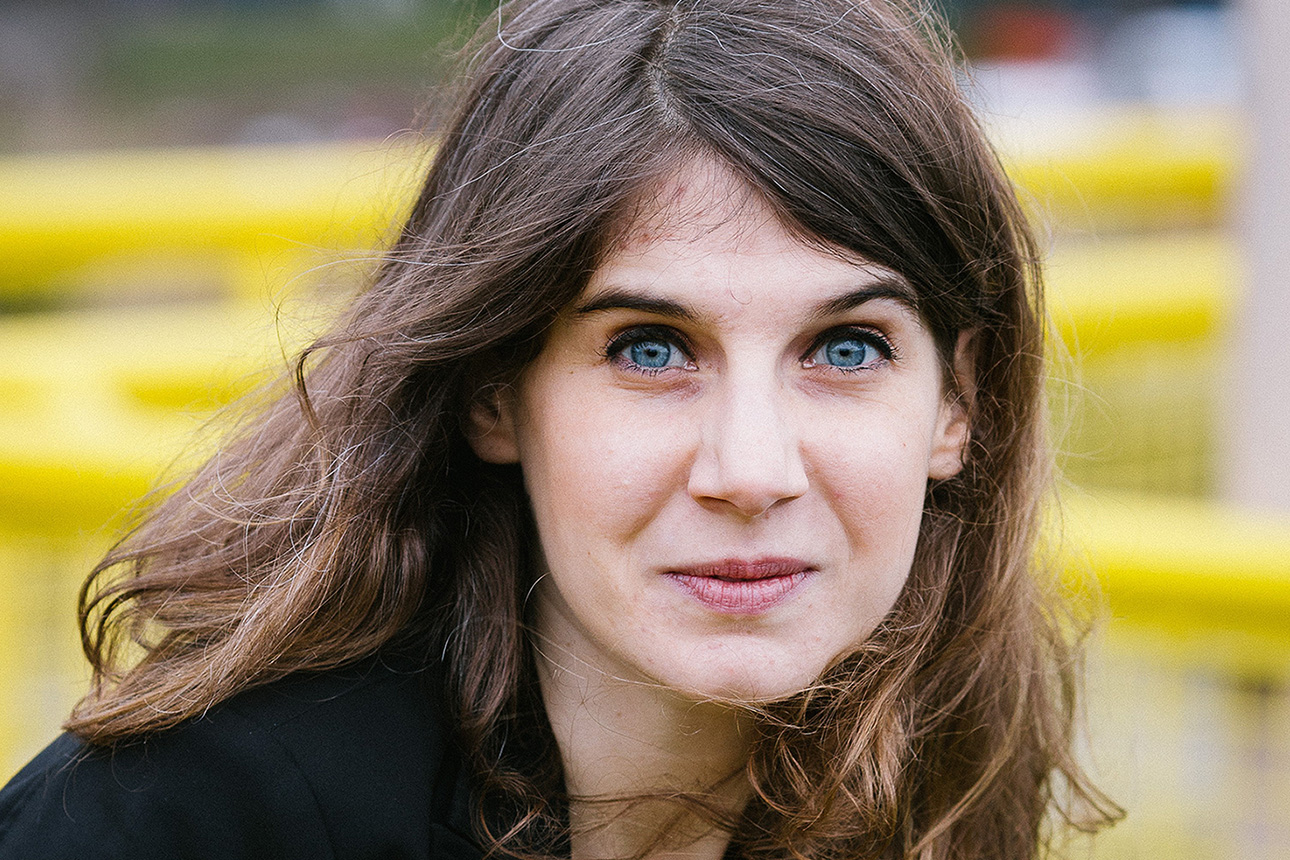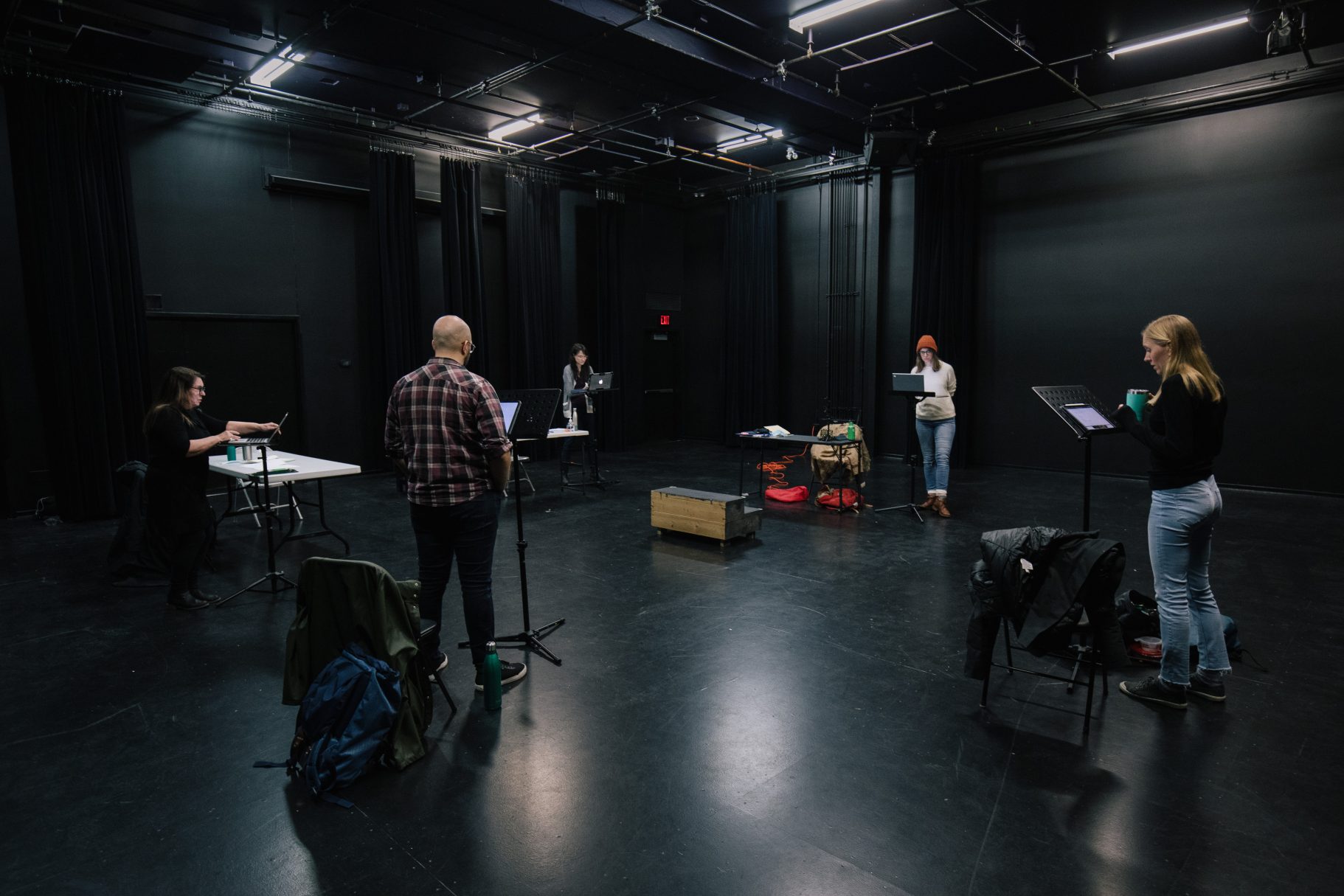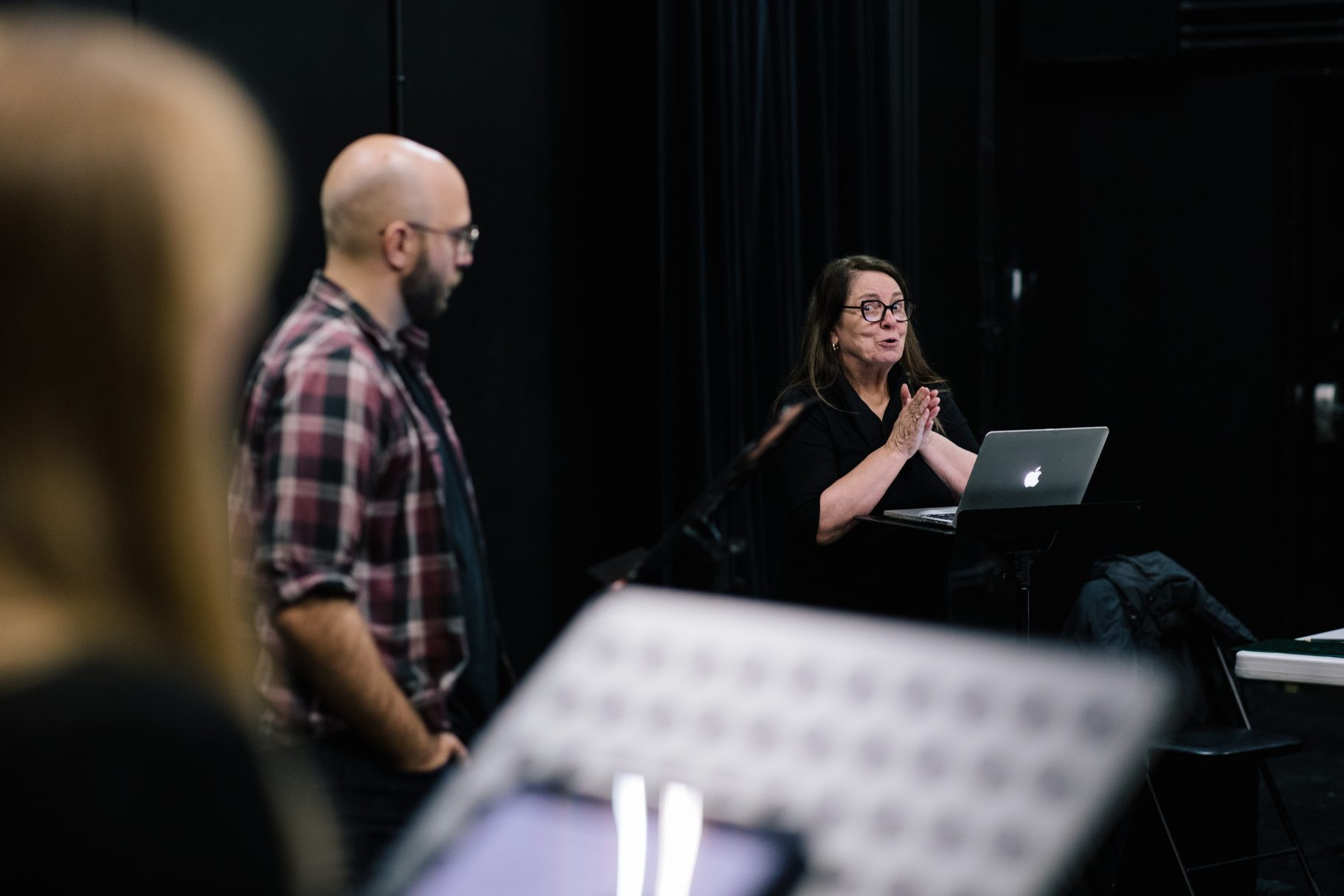La Befana: interview with Anaïs Pellin



With a degree in acting and a Masters in Theatre Studies, Anaïs Pellin is an actor, creator, puppeteer, facilitator and writer…amongst others! In 2020, she founded the Kleine Compagnie, allowing her to develop intimate and poetic projects, inspired by object theatre. With her company, she created “Clementine”, which has just been presented at Presentation House Theatre, and “La Petite Sirène” (“The Little Mermaid”), a project which took part in the micro-residency series at la Seizième in June 2021. Her latest play, “La Befana”, is part of our dramaturgical development program.
We’re also going to see you in “Le merveilleux voyage d’Inès de l’Ouest” this spring…that’s a lot of projects! What drives your artistic practice? What inspires you, lights you up?
Anaïs Pellin: The most important for me is telling stories. To see how we build stories, together, as a team. I love using multiple techniques. I like creation and collaborative devising. I also like to see how, with the actors, we can tell a story. Do we begin with a story that already exists or do we depart from a theme, an idea, and see how it can be developed? I am realizing how much I love collaborating with a team around a text: seeing how the actors take ownership of the words and make them come alive.
You love to be inspired by tales and folklore, it’s what you are doing with “La Befana”. Why is it important for you to reimagine stories in your own way?
Anaïs: I believe that it’s important to see how stories still ring true to audiences today, to see if they still have a place on our stages, and to see how we can adapt them or take ownership of them depending on what we’re living through today. There are always large universal themes in tales, but audiences evolve, and we must ask ourselves ‘how can I share a story that interests me with others? How to reach an audience large than myself while telling these stories?’.
“La Befana”, a play you are currently writing as part of la Seizième’s dramaturgical development program, belongs to this folkloric world: the legend says that the Befana, an old lady, usually on a broom, goes from house to house and visits children the night before Epiphany. Where did this idea of adapting this tale for the theatre come from and how does it resonate with you today? How do you take ownership of it?
Anaïs: It’s connected to a personal story. My grandfather came from the north of Italy and immigrated to Belgium. He really wanted to assimilate into his new country and decided to reject anything that had to do with Italy; he decided not to pass down Italian culture to my father nor to his grandchildren. Towards the end of his life, he started speaking Italian, and it was the first time I heard him speak the language. He had brain cancer and was losing his sense of time. One night, he called my grandmother and asked her ‘did the Befana come by?’ It was a tale he knew from his childhood, kind of like Santa Claus here or Saint Nicolas in Belgium. I found it to be a beautiful image, an old man on his deathbed calling his wife to ask if the Befana had come by. I found this folkloric character all the more fascinating because she was a woman; it connected to the pagan notions of Goddesses, the return of the light, and how this figure could announce death but as part of the cycle of life. These are the aspects that connected me to this tale.
When you speak about your work you say that it’s ‘as much for adults as it is for kids’. What does theatre for young audiences represent for you?
Anaïs: Young audiences are an interesting audience because they are a captive one. Children, whether they are seeing a family or a school performance, did not necessarily choose to be there, so it creates a lot of social mix: there are kids who are used to going to the theatre and like it, and kids who might be going for the first time. It’s an audience that asks a lot of you because they’ll let you know what they think, they don’t have social codes, so if they don’t like it, they are less ‘prudish’ about it, unlike an adult audience. They are immediately going to ask the right questions, have something to say about the story and know when it doesn’t work. It is an interesting and diverse audience.
You mention the difference between working collaboratively and working ‘alone’ (i.e. just writing a play). What is the difference for you? What have you learned? Does each way of working bring something to the other?
Anaïs: It was a bit of a revelation. I realized that I also loved it, thinking of an image and asking myself how to translate it into words. There’s poetic work in it that’s interesting to me, and there’s a parallel with creation work because, in that type of environment, we are all asking each other the question, as a team, of how to translate this poetic image. When you’re writing alone, there will come a time, inevitably, of confronting your writing to actors and to the creative team, you know you will give them that space. For me, it’s a reflection on ‘is it writing or is it directing?’ I have to remove myself as an author and give room to the director’s or the actor’s interpretation, and not impose anything in my text.
You often work with object theatre or with puppets. What do these other art forms add to theatre? What can we do with puppets that we cannot do with a ‘traditional’ text, without these materials?
Anaïs: With object theatre, what interests me, is that we can reproduce things that can sometimes be difficult to reproduce on stage. With miniature objects, we can re-create a set piece close to what we might see in a film set piece, of course it’s never complete because this is not film. It’s kind of like ‘Mad Lib’ theatre because there will be something missing, and we are going to call upon the audience’s imagination to help us fill these gaps. What I like in object theatre or theatre with puppets is the way an inanimate object can bring poetry to the stage. How can we bring it to life and give it emotion? A simple example is when we do a puppet show and kids, or even adults, think that the expression of the puppet has changed. It’s simply the interpretation or the manipulation of the puppeteer that creates the effect, but we want to believe in it, our imagination takes up a lot of space and it’s something I find beautiful.
You have been working on “La Befana” for a few years, it’s quite a long cycle. The usual length of the development cycle at Seizième is two years but has been stretched due to the pandemic. What do we return to after a bit of time off or a period of change? Do you want to bring something new to it? Do you want to clarify your vision of the piece with the perspective you gained?
Anaïs: I think that it is important to leave a text, to gain a bit of distance from it, because a certain element of fatigue can creep in in a creation process and we lose that perspective. The fact that I had a bit of time away allowed me to see it in a new light. Having a team of artists read it, also helps, because all of a sudden, people are interpreting your words and it’s great to see the first instincts of the actors or of the director, Emilie Leclerc. What became clear to us, for the next step of the process, would be to partner with a school, to have at least one public reading of the play in front of younger audience, before we go into production.
Discover the rest of the interview – in French – with Anaïs Pellin in the third episode of our podcast series ‘En coulisses’. To follow the development of “La Befana”, as well as the other projects of our dramaturgical development program, head to our page ‘Artists in residence’. While you wait for these projects to appear on stage, you can see Anaïs in our TYA show “Le merveilleux voyage d’Inès de l’Ouest“, Saturday March 26th, at Studio 16.
